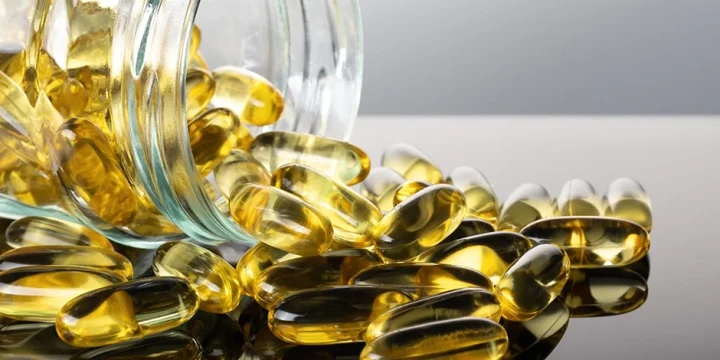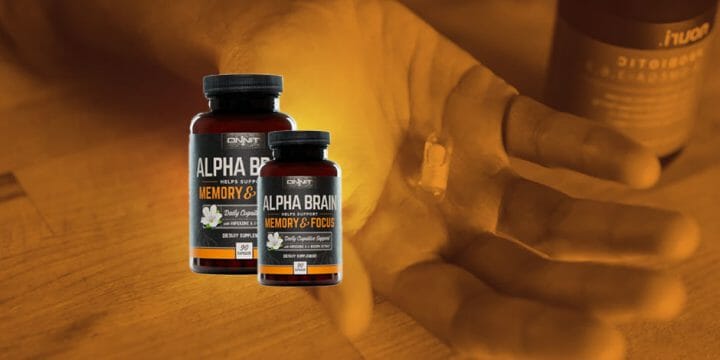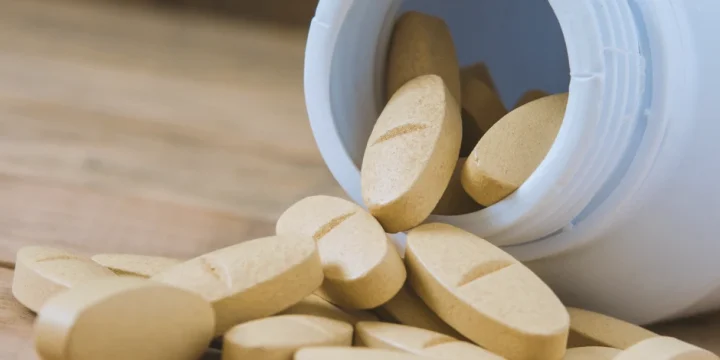Not too many people seem to know about nootropics and their benefits, possibly since they haven’t been around for too long in the fitness industry.
In order not to leave my clients and readers in the dark, I decided to do some additional reading and research on the best natural nootropics and compile the most important info in this article.
For two weeks, I spent a few hours a day going through clinical studies and reviewing them with a dietician to come up with a list of the best natural nootropics.
Let’s dive in.
Quick Summary
- Natural nootropics are organic compounds that enhance mental functions and improve brain health.
- Natural nootropics are naturally occurring substances, whereas synthetic nootropics are man-made substances.
- Natural nootropic supplements contain natural nootropics along with other organic substances.
What Are Natural Nootropics?
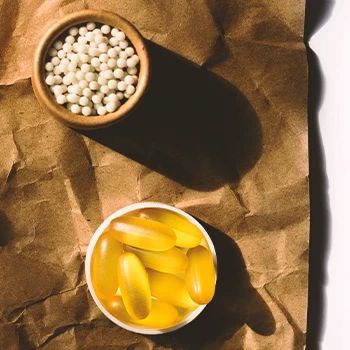
Natural nootropics are organic compounds that enhance cognitive function, particularly memory, creativity, and motivation.
Once consumed, these substances cross your body’s blood-brain barrier to stimulate the appropriate response. They’re used in prescription drugs and supplements to boost mental performance.
You may have come across them before under the labels of smart drugs, cognitive enhancers, or memory-enhancing substances.
Various cultures have used nootropics throughout history to improve mental function and brain health and reverse the effects of cognitive decline from aging.
While natural nootropics are naturally found compounds (as the name suggests), some people tend to confuse them with synthetic smart drugs or nootropics. The latter are lab-made nootropics designed to mimic the effects of natural nootropics.
“Nootropics offer a range of cognitive benefits, including faster reaction time, increased alertness, improved memory, and decreased mental fatigue and fog. Some nootropics are also adaptogenic, meaning they help your body manage stress.”
- Dr. Shari Auth, Holistic Health Practitioner
14 Best Natural Nootropics

Based on our research, here’s a list of the 14 best nootropics that can boost your mental performance and brain function.
1. Caffeine
Caffeine is the most widely used natural nootropic in the world. It’s naturally found in tea, coffee, guarana, kola nuts, and cocoa. It’s also found in various supplements (especially pre-workouts), either on its own or in combination with other substances.
Many people take caffeine to increase alertness, but many don't know how it works. Caffeine blocks your brain's adenosine receptors, which makes you feel less tired and more alert [1].
Normally, doses between 40–300 mg are enough to increase your attention and decrease your reaction time [2].
This is one of the primary reasons caffeine is a primary ingredient in most pre-workouts. It gives you the mental alertness required to push through heavy workouts.
2. Ashwagandha
While not primarily considered a nootropic, we put ashwagandha on our list because it exhibits several nootropic-like effects, and it’s definitely natural.
Ashwagandha works as a nootropic in the following ways:
- Prevents neural degeneration: It helps regenerate your nerve cells and reconstructs synapses, which prevents memory loss [3].
- Reduces stress levels: Ashwagandha may lower your cortisol (stress hormone) and blood sugar levels, which helps reduce anxiety and depression [4]
- Boosts memory and learning: It inhibits acetylcholinesterase, an enzyme that breaks down neurotransmitters; this helps enhance mental function in the long run [5].
3. Bacopa Monnieri (Waterhyssop)

Bacopa monnieri is an ancient Ayurvedic herb that’s been used as a cognitive enhancer for centuries.
Because of its calming and memory-enhancing capacity, It’s used as ayurvedic medicine by the elderly. Several studies found that Bacopa monnieri can improve memory, speed up reaction times, and enhance information processing [6].
It works by balancing the brain chemicals, dopamine, and serotonin, and reducing cortisol [7].
However, this nootropic smart drug isn’t a quick fix. Research shows that you should take 300–600 mg doses for several months to reap Bacopa monnieri’s maximum benefits [8].
4. Rhodiola Rosea
Rhodiola rosea is an adaptogen (a substance that helps your body manage stress) known for helping your body fight mental fatigue.
Compared to the other nootropics on this list, Rhodiola rosea is more commonly used by people who experience burnout and high levels of stress, such as college students. This is primarily because this adaptogen is known for improving your overall mood and decreasing anxiety [9].
Taking small daily doses may increase feelings of well-being during stressful events, making it the perfect supplement to take before a job interview or exam [10].
5. Ginkgo Biloba

Ginkgo biloba is one of the oldest living species of trees native to Japan, Korea, and China.
Some research suggests that the positive effects of Ginkgo biloba are a result of increased blood flow to the brain after consumption [11].
Some of these benefits include improved memory, enhanced mental processing in older adults, and lowered stress levels [12].
While it might be worth taking Ginkgo biloba supplements because of their purported effects, it seems that more research is needed to fully understand if the effects are genuine.
6. L-Theanine
L-Theanine is a naturally occurring amino acid found in tea, and it’s used in many supplements, especially pre-workouts.
Several studies show the link between L-theanine consumption and feelings of calmness without the side effect of drowsiness [13]. This is primarily why it's usually taken along with caffeine to control the effects of stress.
Other research shows that taking even 50 mg of L-Theanine (the amount found in two cups of tea) increases your brain's alpha waves, which are linked to creativity [14].
Additionally, it also has neuroprotective effects, which generate and restore damaged nerve cells [15].
For this reason, L-Theanine is prescribed as a therapeutic supplement for people who have high anxiety levels.
7. Lion’s Mane Mushroom (Hericium Erinaceus)
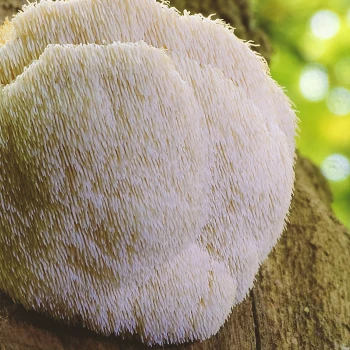
Lion’s mane mushroom is one of the more versatile nootropics on our list in terms of consumption; it can be eaten raw, cooked, dried, or as tea.
Most research on this mushroom comes from animal subjects, so some of the results may have implications on how this nootropic affects humans.
For example, one study on mice showed that lion’s mane might treat or prevent neurodegenerative diseases [16].
Linking these results to humans, lion's mane mushroom could prevent age-related cognitive decline.
Other studies show that two compounds found only in lion’s mane mushrooms — hericenones and erinacines — may stimulate, grow, heal, and protect nerve cells [17].
Another compound in this mushroom — amycenone — may treat sleep disorders, enhance memory, and improve mental function [18].
8. Omega-3 Fatty Acids
Omega-3 fatty acids, nicknamed “brain food,” are a type of phospholipid (barriers that protect your cells) that help maintain cellular function.
Recently, they’ve also been featured as a nootropic after studies found their benefits on cognitive health.
Research shows that regular consumption of omega-3 fatty acids can help enhance and maintain normal brain function in adults, and this nootropic may also prevent and treat depression [19].
The best part about omega-3 fatty acids is that they’re found in many foods, such as fish, seaweed, chia seeds, flax seeds, and walnuts (not to mention various supplements).
9. Choline

Choline is a natural nootropic that your body produces in the liver. However, it doesn’t produce enough of it, so you need to get it from a choline-rich diet or a nootropic supplement.
Like B vitamins, choline plays an essential role in regulating brain development, liver function, muscle movement, and metabolism [20].
It also aids the brain in retaining memories and achieving deep sleep [21].
Choline deficiency is very rare, but certain people might be at risk more than others. These include pregnant and post-menopausal women, endurance athletes, and people who abuse alcohol [22].
To get enough choline, eat a diet that includes beef liver, eggs, and chicken breasts.
10. Panax Ginseng
Panax ginseng is an ancient medicinal plant known to enhance brain function. While more research is needed on how this works, some studies found that ginseng may have strong anti-inflammatory effects that protect your brain from oxidative stress [23].
One dose of 200–400 mg of ginseng may reduce brain fatigue and enhance mental clarity [24]. This makes it especially helpful for people who struggle with focusing on work or study.
However, some long-term studies show that your body may adapt to its effects, rendering them less effective in a matter of months [25].
11. Curcumin
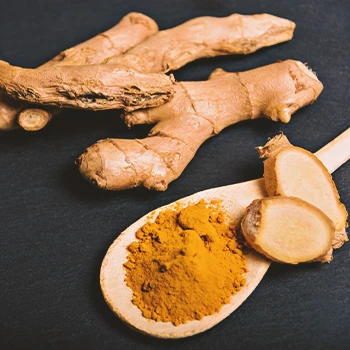
Curcumin is an extract from turmeric, which is considered a nootropic-rich food, and it’s known for its antioxidant and stimulant properties.
As a nootropic, curcumin can help with various nervous system disorders like Alzheimer's disease, tardive dyskinesia, major depression, epilepsy, and brain-aging diseases [26].
It also activates your brain-derived neurotrophic factor (a protein that maintains nerve cells), which affects learning and memory [27].
The only issue with curcumin is its very low bioavailability (ability to be absorbed by your body) [28]. You can increase its bioavailability by taking it with phosphatidylserine (a phospholipid found in brain cell membranes) [29].
12. Huperzine A
Huperzine A is a stimulant extracted from Chinese club moss.
Apart from being a nootropic that enhances alertness, memory, and learning, it's also used as a treatment for skin conditions.
Recent studies show that Huzerpine A may be helpful in slowing down the effects of Alzheimer's disease in elderly people by increasing acetylcholine levels and forming new brain cells [30].
While it’s been trusted for thousands of years in Southeast Asia for enhancing brain function, more studies need to be conducted on its long-term effects.
13. Salvia Officinalis/Lavandulifolia

Salvia officinalis, also called Salvia lavandulifolia, is the botanical name for sage. While it’s one of the less popular nootropics on our list, ancient Greeks used it to enhance memory functions.
A series of human clinical trials found that a single 167-mg dose of Salvia officinalis improved memory and attention performance in healthy adults [31].
The study also found that subjects who took this herb improved their levels of alertness for 2.5 hours after consumption.
Additionally, S. officinalis may also be beneficial in treating patients with neurological disorders.
A 2014 review found that S. officinalis administration improved the cognitive performance of patients with dementia and other cognitive impairments [32].
“[The] overall evidence for the cognitive-enhancing and protective effects of Salvia plants is promising.”
- Dr. Adrian Lopresti, Clinical Psychologist
14. Creatine
Creatine is an important amino acid for building muscle mass and strength, but it also has many benefits for brain function.
After consumption, creatine binds with phosphate to create a molecule that fuels your brain cells [33].
Studies have shown that these cells are known to improve short-term memory and reasoning skills, especially if you're highly stressed or a vegetarian [34].
While we don't suggest taking high doses of creatine, you can safely take 5 grams a day to experience the fullness of its effects.
Foods like red meat, milk, and seafood are some of the best sources of creatine.
A normal omnivorous diet may give you at least 2 grams of creatine a day [35]. Since creatine isn't found in most vegetarian foods, vegans may have to take creatine supplements to meet their daily demands.
Natural Vs. Synthetic: The Differences

Here are two types of nootropics: natural and synthetic.
Here are the differences:
- Natural nootropics come in the form of plants, plant extracts, and foods.
- Synthetic nootropics are made in a lab.
- Several natural nootropics haven’t received much clinical investigation, and the proof of their benefits comes from word of mouth or can be attributed to the placebo effect.
- Synthetic nootropics are usually highly regulated and tested with multiple clinical trials before they’re released for consumption.
- Natural nootropics have very few instances of side effects (side effects are usually a sign of misuse).
- Synthetic nootropics have more instances of side effects as many of them contain high ingredient dosages or combinations of nootropics that don’t mix as well.
Related Articles:
Benefits

Here’s how daily supplementation of nootropics can benefit your health:
- Improves memory: One of the most common benefits of nootropics is improved memory.
- Increased blood flow to the brain: Nootropics increase blood circulation to the brain and increase its overall activity.
- Fights age-related mental decline: Many nootropics may help you fight age-related brain diseases.
- Improves overall brain health and function: Nootropics can help maintain proper brain health and functioning.
Side Effects
Natural nootropics don’t cause side effects. Rather certain factors in conjunction with consuming nootropics lead to side effects. Factors such as genetic disorders, megadosing, and poor ingredient combinations can lead to side effects from nootropics.
While there aren’t any studies that show the side effects of natural nootropics (because these instances are so rare), here are the ones that I’ve noticed from personal experience.
- Brain fog
- Headaches
- Digestive issues
- Insomnia
FAQs
What Foods Are Natural Nootropics?
Foods that are natural nootropics include green tea, coconut oil, eggs, blueberries, turmeric, and spinach, to name a few. These foods are known to improve memory, focus, alertness, and relaxation. They can also be combined with nootropic supplements to improve cognitive function.
Do Nootropics Heal the Brain?
Yes, nootropics can heal the brain by speeding up the recovery and rehabilitation of your brain cells. If you’re taking nootropic supplements, make sure they contain only natural ingredients. You don’t want to risk any side effects when taking supplements for your brain health.
Is Magnesium a Nootropic?
Yes, magnesium is a nootropic. While it's primarily an essential dietary mineral that'll help you relax, it also functions as a nootropic. It may improve short-term and long-term memory and reduce the risk of age-related memory loss [36]. It also regulates the release of the stress hormone cortisol [37].
References:
- https://pubmed.ncbi.nlm.nih.gov/20164566/
- https://pubmed.ncbi.nlm.nih.gov/27612937/
- https://www.ncbi.nlm.nih.gov/pmc/articles/PMC1576076/
- https://www.ncbi.nlm.nih.gov/pmc/articles/PMC6979308/
- https://www.phcogj.com/article/320
- https://www.ncbi.nlm.nih.gov/pmc/articles/PMC3153866/
- https://www.sciencedirect.com/science/article/pii/S1756464621003200
- https://www.ncbi.nlm.nih.gov/pubmed/11498727
- https://pubmed.ncbi.nlm.nih.gov/19016404/
- https://pubmed.ncbi.nlm.nih.gov/10839209/
- https://www.ncbi.nlm.nih.gov/pubmed/12905098
- https://pubmed.ncbi.nlm.nih.gov/10890330/
- https://pubmed.ncbi.nlm.nih.gov/28056735/
- https://www.ncbi.nlm.nih.gov/pubmed/18296328
- https://pubmed.ncbi.nlm.nih.gov/30553451/
- https://www.ncbi.nlm.nih.gov/pmc/articles/PMC5133811/
- https://www.ncbi.nlm.nih.gov/pmc/articles/PMC5987239/
- https://www.sciencedirect.com/science/article/abs/pii/S2186495012000089
- https://www.ncbi.nlm.nih.gov/pmc/articles/PMC7468918/
- https://www.medicalnewstoday.com/articles/327117
- https://www.ncbi.nlm.nih.gov/pmc/articles/PMC6531048/
- https://www.ncbi.nlm.nih.gov/pmc/articles/PMC6722688/
- https://www.ncbi.nlm.nih.gov/pubmed/26236231
- https://www.ncbi.nlm.nih.gov/pubmed/15982990
- https://www.ncbi.nlm.nih.gov/pubmed/11895046
- https://www.ncbi.nlm.nih.gov/pmc/articles/PMC2929771/
- https://pubmed.ncbi.nlm.nih.gov/19879308/
- https://www.ncbi.nlm.nih.gov/pmc/articles/PMC6770259/
- https://www.ncbi.nlm.nih.gov/pmc/articles/PMC4926501/
- https://www.ncbi.nlm.nih.gov/pmc/articles/PMC4137276/
- https://link.springer.com/article/10.1007/s40279-018-1007-0
- https://onlinelibrary.wiley.com/doi/10.1111/cns.12270
- https://www.sciencedirect.com/science/article/pii/S092544390500133X
- https://pubmed.ncbi.nlm.nih.gov/21118604/
- https://www.ncbi.nlm.nih.gov/pubmed/26874700
- https://www.ncbi.nlm.nih.gov/books/NBK507270/
- https://www.ncbi.nlm.nih.gov/books/NBK507250/
About The Author
You May Also Like
